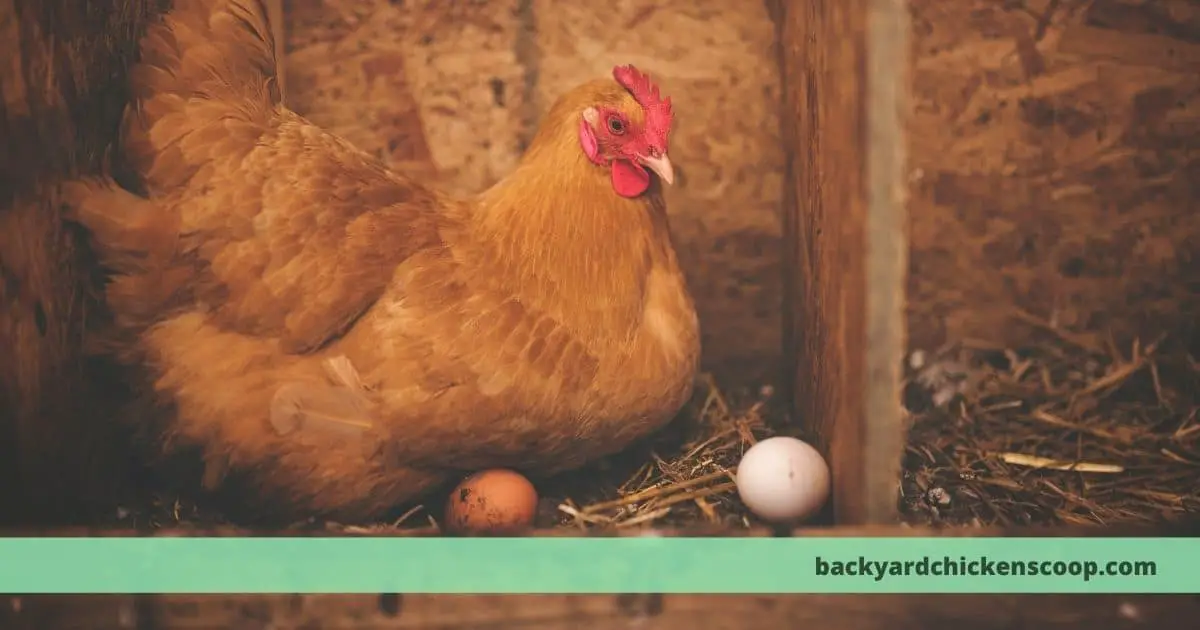Okay, my chicken laid her first egg and then stopped. As an experienced chicken owner, I’ve navigated the ups and downs of poultry parenting with joy, curiosity, and a fair share of surprises. One of the most puzzling moments came when one of my hens, whom I’ll affectionately call Daisy, laid her first egg and then… nothing. No more eggs.
It was as if she had checked egg-laying off her to-do list and moved on. If you’re facing a similar situation, I’m here to share what I learned from this exceptional pause and how we managed to get back on track.
Insight from an expert
My vet shared with me a nugget of wisdom that I’ve carried ever since: ‘Remember, each hen is an individual. Just like people, they need time to adjust to new experiences, including laying eggs. Offer them a balanced diet, a secure environment, and a touch of patience, and you’ll often see them return to form. It’s all about meeting their needs on multiple levels.
Here’s a comprehensive overview:
| Specific Reason | Description | Solutions |
|---|---|---|
| Stress | Secure the coop run against predators and provide safe hiding spots. | Ensure a calm, safe, and consistent environment. |
| Nutritional Deficiencies | Lack of essential nutrients like calcium, protein, and vitamins can halt egg production. | Provide a balanced diet with layer feed and supplements as needed. |
| Health Issues | Diseases or parasites can impact a chicken’s ability to lay eggs. | Regular health check-ups and timely veterinary care. |
| Age | Very young or older hens may have inconsistent laying patterns. | Understanding that age affects laying capacity and adjusting expectations. |
| Inadequate Light | Chickens need sufficient daylight to lay consistently. | Ensure 14-16 hours of light daily, using artificial lighting if necessary. |
| Poor Housing Conditions | Overcrowded or dirty coops can lead to stress and disease. | Maintain clean, spacious, and well-ventilated housing. |
| Lack of Routine | Inconsistent feeding, handling, or egg collection can cause stress. | Establish and maintain a consistent daily routine. |
| Environmental Changes | Moving to a new coop or changes in the flock can disrupt laying. | Minimize changes and introduce new environments or flock members gradually. |
| Predation Threats | The presence of predators or even the threat can cause stress. | Secure the coop and run against predators and provide safe hiding spots. |
Understanding the Pause
Initially, I was puzzled and concerned. Was Daisy ill? Had I done something wrong? After some research and consulting with more experienced chicken keepers, I learned that it’s not uncommon for hens to take a break after laying their first egg. This can be due to stress, dietary imbalances, or simply their bodies adjusting to the new task of egg production.
Creating a Stress-Free Environment
One key lesson I learned is the importance of reducing stress for your hens. Chickens are sensitive creatures, and changes in their environment can impact their laying patterns. To help Daisy feel more comfortable, I made sure her coop was clean, safe from predators, and had plenty of natural light. I also spent more time with her, talking and offering treats to build trust and reduce anxiety.
The Right Diet for Egg Production
Diet plays a crucial role in egg production. I realized that while my chickens had access to plenty of forage, Daisy needed additional nutrients to support egg laying. I introduced a balanced layer feed that contained the right mix of calcium, protein, and vitamins. It wasn’t long before Daisy’s egg-laying engine started up again, much to my delight.
Consistency is Key
Routine is comforting to chickens. I worked on keeping a consistent schedule for feeding, free-ranging, and bedtime. This consistency helped Daisy and the rest of the flock feel secure, which, in turn, encouraged regular egg-laying.
Learning and Growing Together
This experience taught me that chicken keeping is a journey of learning and adaptation. Each chicken has its personality and needs, and what works for one may not work for another. Daisy’s brief pause in egg laying reminded me to stay attentive, proactive, and patient.
Sharing the Joy
The joys of chicken keeping are immeasurable. From the excitement of finding eggs in the nest box to the simple pleasure of watching the flock scratch and peck in the yard, it’s a fulfilling experience. Sharing these moments and lessons with fellow chicken enthusiasts strengthens our community and our understanding of these wonderful creatures.
Final Thoughts
If your hen has paused after laying her first egg, don’t despair. Consider it an opportunity to review and improve your chicken care practices. With patience, observation, and a little tweaking, you’ll likely see your hen return to her egg-laying duties, bringing you the joy of fresh eggs and the satisfaction of supporting your flock’s health and happiness.
Remember, chicken keeping is a journey, and every challenge is a chance to grow closer to your feathered friends. Happy chicken keeping!


